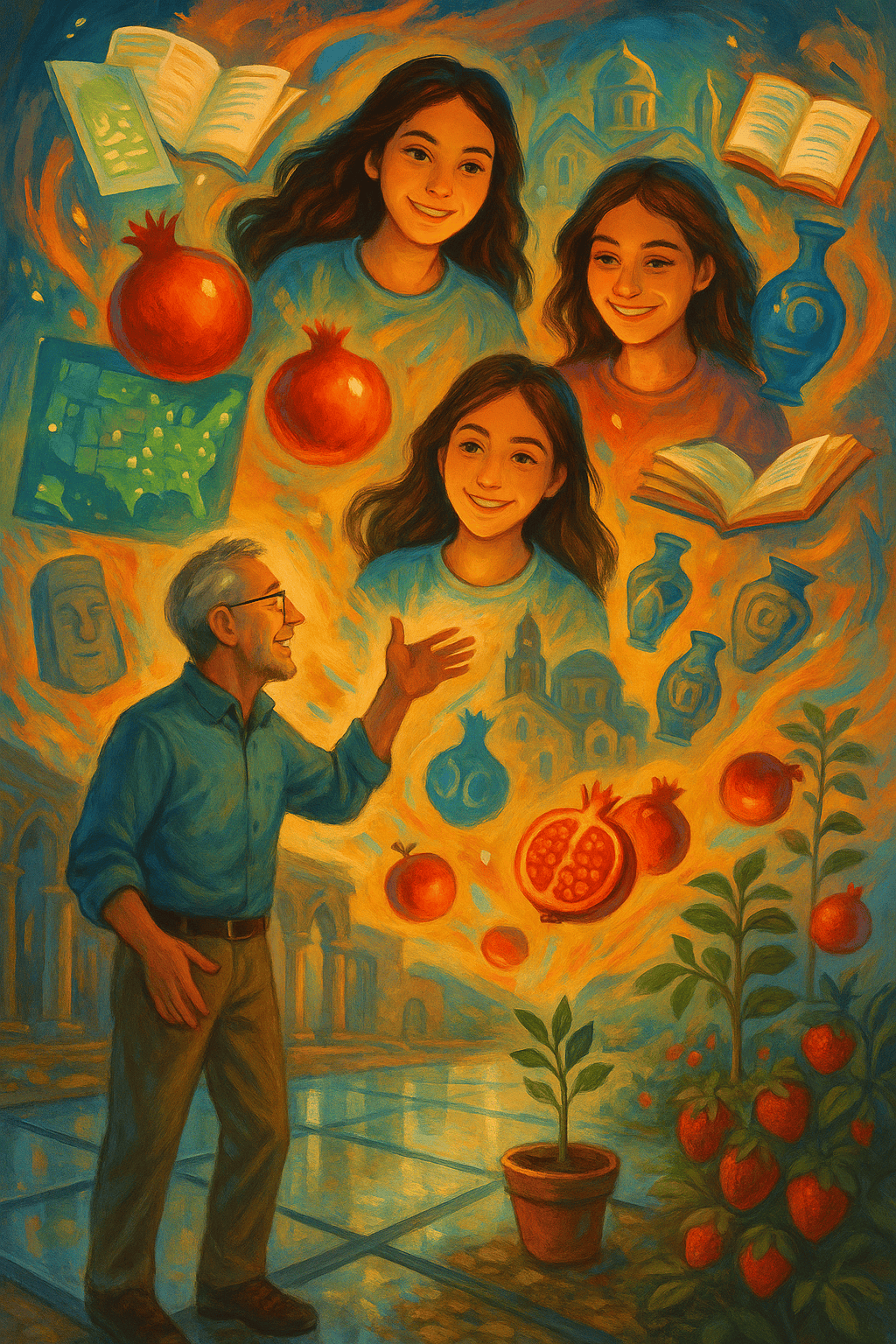The girls arrived in the virtual session burdened with biology notes and the lingering weight of a brutal chemistry exam. It was the tail end of the academic year in southern Turkey, and nerves were frayed. Yet despite the looming final exams, they logged on—not for grades or attendance, but because it was Andrew’s last virtual session.
For nearly nine months, Andrew McCrea, a farmer-broadcaster from rural Missouri and host of the nationally syndicated “American Countryside,” had been a familiar presence in their lives, offering a window into the U.S. through the lens of storytelling. His sessions, part of the Be the Voice of Girls program, had taken them from prairies to podcast studios, from geysers to grocery store anecdotes. On this particular day, he began not with grammar drills but with a map—a sea of green icons representing all 63 U.S. national parks.
As he shared stories from Yellowstone and the Great Smoky Mountains, the screen flickered with hearts and emojis. “Have you ever seen a firefly that flashes in sync?” he asked, describing a phenomenon unique to the Smokies. They hadn’t, but their eyes widened at the thought. He was preparing them not just for language fluency, but for imaginative citizenship—for knowing a place well enough to describe it, and articulate it in a new tongue.
But this session had another purpose too: Andrew is coming to Turkey in June. He’ll join the girls in Hatay for their closing ceremony. After months of virtual storytelling, the stories will soon continue in person—among ancient mosaics, seaside views, pomegranate orchards, and winding market lanes. “You’ll be my tour guides,” he told them. “Show me the world through your eyes.”
And they began to.
One spoke of the Museum Hotel in Antakya, where ancient streets sleep beneath glass floors. Another described a cathedral carved into stone, said to be one of the earliest sanctuaries of Christianity. A third offered Andrew a pomegranate—though, as he gently pointed out, it probably wouldn’t make it through U.S. Customs. Unfazed, she grinned and declared, “Then I’ll plant one for you and send you pictures.”
These weren’t rehearsed answers. These were quiet, generous offerings—pieces of memory and place they wanted to share with someone who had shared so much with them.
What makes Be the Voice of Girls so different isn’t just its curriculum—English through arts, storytelling, culinary traditions, digital design—it’s the relationships that form when a student in a modest public school in Iskenderun talks directly to a storyteller from the American heartland. It’s the way a cultural ambassador isn’t a diplomat in a suit but a girl with clay under her nails who now knows how to describe her life in a second language.
Andrew’s departure from the virtual classroom doesn’t signal the end. It signals transformation. In just a few weeks, he’ll walk the same streets these girls have been describing, eating the food they’ve written about in their English journals, capturing their voices not over Wi-Fi but through conversations under the Mediterranean sun.
And when that time comes, he’ll have more than a passport and camera. He’ll have a community waiting. They’ve studied his country; now it’s time for him to see theirs.
“Once a BVG girl, always a BVG girl,” the program likes to say. But perhaps this applies to its teachers, too.
Because Andrew won’t just be visiting.
He’ll be returning.


